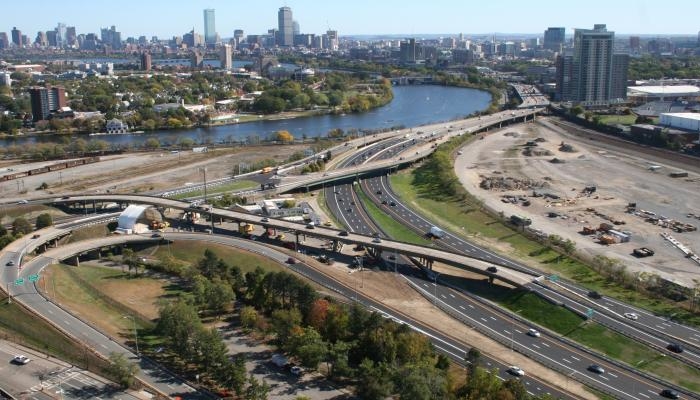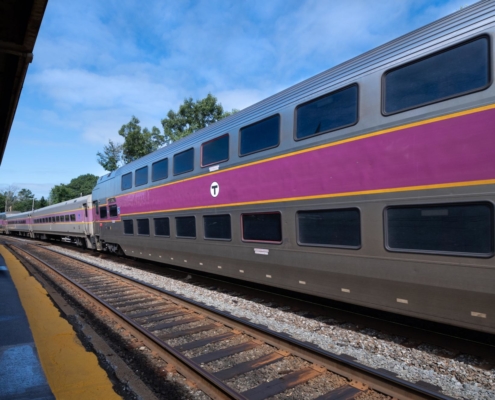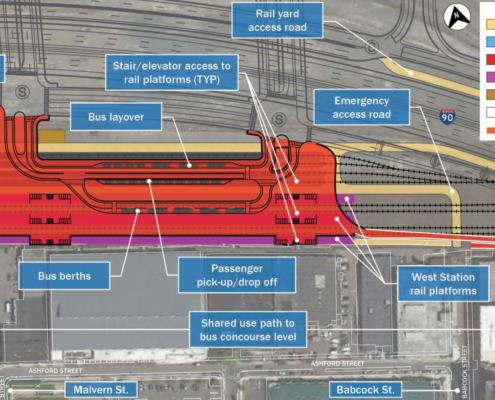Pioneer Applauds MassDOT for Allston Project All At-Grade Plan
Pioneer Institute applauds the Massachusetts Department of Transportation (Mass DOT) for its decision to move forward with an all at-grade design for the “throat” area as part of the massive $1.7 billion Allston I-90 Interchange project announced yesterday by State Secretary of Transportation Jamey Tesler.
Pioneer had proposed that MassDOT should revise its Scoping Report on the I-90 Allston Multimodal Project and recommend an additional option – a modified at-grade option for the throat area – to the Federal Highway Administration.
The Institute believed then and continues to believe that an all at-grade design will shorten construction time, lower costs, create fewer negative economic and congestion impacts, and improve neighborhood access to park land along the Charles River.
We have reiterated this position numerous time including in an op-ed, a magazine article, public commentary to MassDOT, at project task force and other public meetings, in public testimony at MassDOT board meetings, and open letters to the Governor and The MassDOT Board.
Pioneer recognizes the integral efforts of A Better City, the Conservation Law Foundation, and members of the I-90 Allston Multimodal Project Task Force as well as Senate President Karen Spilka and State Representative Michael Moran in achieving this outcome.
Get Updates on Our Transportation Research
Related Posts









